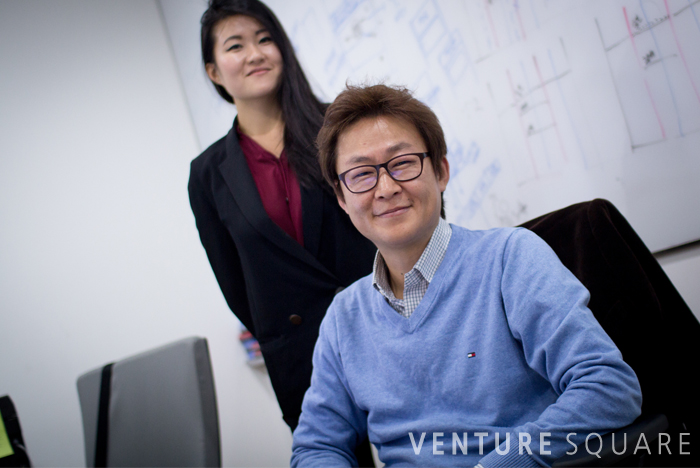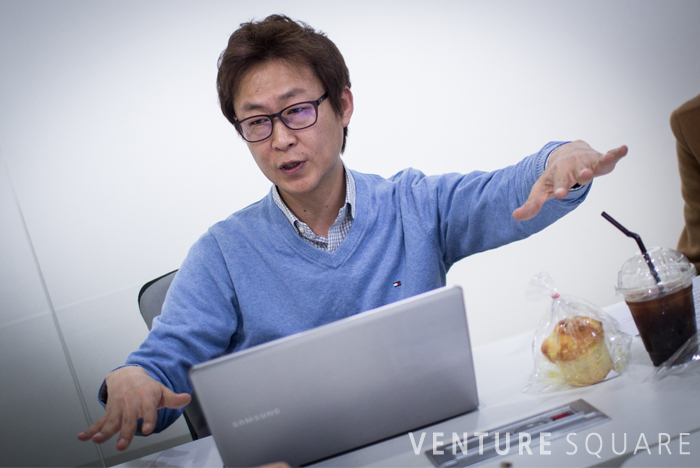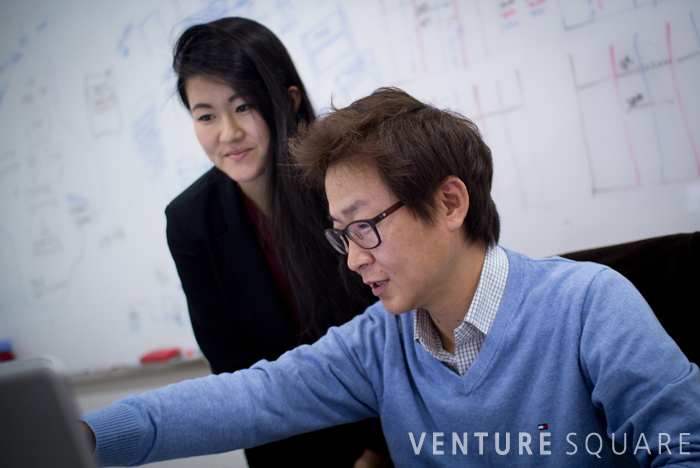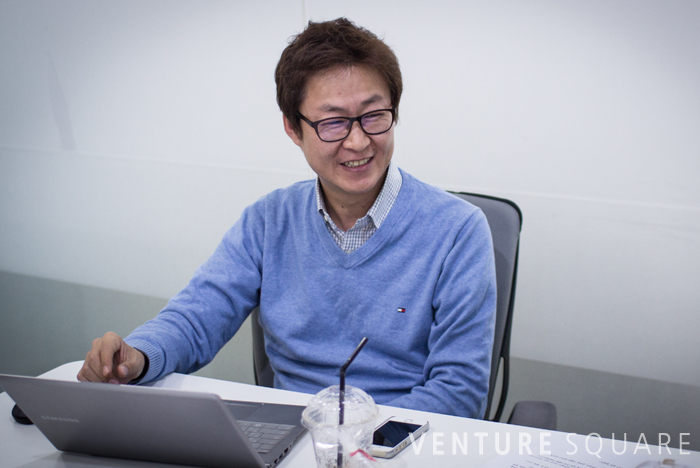Ivyberry Co. CEO Doug Yong Parc sat down with VentureSquare to talk about Cousto as a local deal platform, the reception of mobile payments, and the opportunities abroad while visiting Silicon Valley.
“Right now, Korea is in an era of transition. We’re reassessing and reevaluating things and changing. I wanted to be a part of this.”
Parc had previously worked in cloud services but had long dreamed of starting his own company. Parc questioned everything around him, particularly with the way people used and perceived making payments online across devices. Filled with thoughts of changing the world, Parc eventually made his move in his 30s to leave his employer at the time to start his own company. Cousto was born.
Cousto is a local market service that connects customers in the area with local businesses. Cousto presents local, time-dependent deals from various stores or restaurants that customers can claim on the spot.
“In America, there aren’t many cases of users getting cheated online or concerns in online shopping.” Parc explained. “However, in Korea there are cases of people scamming others and running off with hundreds of thousands of dollars every year. Despite having a much more complex payment infrastructure, people in Korea act more cautiously. Companies like Groupon have emerged and helped ease concerns, yet clearly while one side makes a profit, someone is taking a hit, right?”
Despite having a much more complex payment infrastructure, people in Korea act more cautiously.
Parc focused alot on online payment and its perception. To Parc, not enough people question the way things were, and that people submit to whatever avenue is available. Parc’s vision of a payment platform had to be one that operated while benefitting everyone.
However, Parc also referred to a quote by Google founder Larry Page admitting that though Nikola Tesla was (Page’s) hero, it was better to be more like Thomas Edison: “If you invent something, that doesn’t necessarily help anybody. You’ve got to actually get it into the world; you’ve got to produce, make money doing it so you can fund it.”
Cousto’s philosophical foundation rests on these notions. Though Cousto is currently targeting cafes, Parc seemed well aware of the challenges in scalability. “We approached 10 merchants and 8 of them agreed to partner with our service. Though that seems like a high success rate, it’s not a scalable or sustainable method for scouting larger volumes. Instead, we want to build a quality product that attracts merchants to us, rather than the other way around.”
“Instead, we want to build a quality product that attracts merchants to us, rather than the other way around.”
Parc continued to remind us that Cousto’s service facilitated but did not trigger payment without authorization from both the customer and merchants. Though users can claim an offer for an agreed price, no transaction is made until the user physically met with a store employee and confirmed their offer. Despite the low risk of misuse or fraud, Parc illustrated the issue of trust by its users.
“Most of the open market is a risky field. But Cousto requires physically going to the store and confirming the offer in person before any transaction or payment goes through. Thus there’s little to no risk.”
“Even if people push the payment button, it’s not actually approved. But because the user experience is so similar to online shopping, people are hesitant. Purchasing something online or through an app is in itself not a light decision. Though we’re trying to assure people that we are not a true payment service, people are very careful. It’s hard to recreate trust in an app like the way Uber did with their service.”
While visiting Silicon Valley, Parc shared some of his experiences about the Startup Nomad program and Cousto’s goals.
“(In Silicon Valley) the ‘daily deal’ model is widely known and the people there were experienced in Cousto’s service area. Many understood Korea’s payment infrastructure and our conversations flowed very easily.”
“There are a lot of services like Cousto in America. Not exactly alike, but similar. While bouncing ideas off of people, we felt more confident in many aspects of our service. Eventually we want to go global, but for now our main focus is succeeding in Korea.”
Like many of the other Startup Nomad teams, Parc had a chance to mingle with and observe the tech community in Silicon Valley while receiving valuable feedback on how to scale their services, how it compared to existing competition and how to present their company to investors. Cousto’s founder was especially interested in networking with startups who specialized in local market services.
“I wanted to understand how businesses approached localization, not as a big company moving fast… but more like door dashing.”
Parc also noted that businesses and investors looked beyond the gaming boom in Asia. “For example, gaming is very big in our country, but investors show a lot more interest in other services, like collaborative apps. They have a completely different perspective and at times I felt their mentality was much more reasonable and straight-forward.”
Given the time constraints of dealing with a packed schedule and juggling company work, Parc offered some suggestions for Startup Nomad. “I wish the schedule was cut in half so that I had more time for Cousto tasks. We attended events until the afternoon and worked at night to compensate for the time difference with Korea so it was very tiring.”
Looking back at the program, Parc left these words for future Startup Nomad participants:
“Just pack your bags and go. Move your company or even start your own business in America. Creating a startup in itself requires a lot of personal investment, but if you’ve already made up your mind then there’s just a lot more opportunities over on the other side.”
“Just pack your bags and go. Move your company or even start your own business in America. Creating a startup in itself requires a lot of personal investment, but if you’ve already made up your mind then there’s just a lot more opportunities over on the other side.”
Eddie Cho (echo@venturesquare.net)





